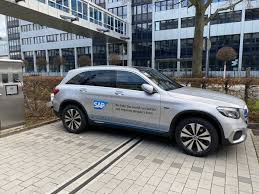From Extinction Rebellion, Occupy Wall Street, the Indignados, Black Lives Matter to the MeToo Movement, the past decade has certainly been tumultuous. Across the world, millions of people have both protested and resisted, sat down and stood up for the causes they believe in.
And largely, they were empowered by truth.
Climate change especially, has science firmly in its corner. 97% of actively publishing climate scientists agree that climate change is caused by human activity and is predicted to be irreversible by 2030. This climate crisis is making weather patterns more extreme, as evidenced by the wildfires currently ravaging Australia. Rising temperatures also imperil public health, with hotter climates encouraging mosquitoes carrying deadly diseases into previously unsuitable countries.
SAP has been fully committed to sustainability and addressing climate change for over ten years. With its global mission to make the world run better and improve people’s lives and 77% of the world’s GDP touching an SAP system, there is a huge responsibility to help design a sustainable future for all of us. In 2009 it set its first carbon reduction targets, and by 2019 SAP was (again) rated as the No. 1 software company in the Dow Jones Sustainability Indices.
SAP uses the digitisation of business processes and the application of data to make decisions about resource usage to help its customers reduce carbon outputs and has embraced the 17 United Nations Sustainable Development Goals (UN SDGs) from the start.
“SAP’s key lever to contribute is our product portfolio, with which we enable customers to create positive economic, environmental, and social impact,” says SAP Chief Sustainability Officer, Daniel Schmid. “If we look at our broad reach, with more than 413,000 customers, the potential for us to make a difference could be enormous.”
Alongside sharing pioneering products and services, SAP is working to become carbon neutral by 2025, focusing on the three pillars; avoiding, reducing and compensating emissions.

An example of SAP making a concerted effort to reduce its emissions was demonstrated last week when Co-CEO Christian Klein travelled the 430km journey from corporate HQ in Walldorf, Baden-Wurttemberg, Germany, to the World Economic Forum meeting in Davos, Switzerland, in a hydrogen-electric hybrid car. He completed the journey in 5 hours and 26 minutes, with a few comfort breaks and (hopefully, locally sourced) snacks along the way.
SAP also solidified its carbon emission promise by joining Gucci’s CEO Carbon Neutral Challenge, announced at the World Economic Forum in Davos last week. Providing customers with an established approach to transition to a low carbon-economy, SAP is delivering on its commitment to help customers tackle United Nations SDG 13.
The unusual thing about the climate change movement is that it has been fuelled by student-led protests. For example, Greta Thunberg – a 17-year-old school girl – sparked and organised global student-led strikes to urge governments to take action on climate change. She triggered 4,600 events across 150 countries in September 2019 alone.
In fact, most of the interest groups, social movements and protests that have snowballed over the past decade have been mobilised by predominantly one generation. A global cohort empowered by the inequalities in the world, taking action to incite change. This generation is digitally native; they have been exposed to mobile phones, the internet and social media since their earliest memories. Apt then that these 4 to 24-year olds are labelled ‘Generation Z’, an elaborate extra-terrestrial nod to the technology typical to them.
Generation Z are quite unlike previous generations. Characteristically, they are ethically conscious. They care about their impact on the world, and this care infiltrates every aspect of their lives.
A study by McKinsey found that 90% of this demographic expect companies to take a responsible approach to environmental and social issues. 65% of Gen-Zers attempt to track the supply chain behind a company or product, while 70% indicated they would focus on products from companies which have established an ethical reputation.
Girls With Impact found that 45% of Gen-Zers want to work for a company that makes a positive difference in the world. Businesses cannot afford to ignore this, they will suffer if they don’t respond to Generation Z’s demands. The statistics don’t lie.
So, what can businesses do to stay relevant to the Gen-Zers who are demanding institutions react to the threats our world faces? In case you didn’t know, in a few years Gen-Zers will be the largest generation of consumers, something businesses cannot afford to neglect.
Luckily, 2020 also heralds a new era of innovation, with companies like SAP wielding powerful technologies with the capabilities to transform the world. Disruptive technologies such as blockchain, AI and the internet of things have been proven to deliver a positive impact on all of our lives.
As Christian Klein said: “It is up to all of us to use technological advancement to tackle the world’s greatest challenges and turn them into our biggest opportunities.”
These challenges come in all shapes and sizes. For example, eight billion tons of plastic where it shouldn’t be. In a new SAP Qualtrics/WEF global opinion poll released at Davos, people’s experiences and opinions regarding plastics and packaging showed that the number one concern regarding plastics is its harmful impact on ocean and marine life.
The SAP Plastics Cloud was launched back in 2018 to tackle the widespread issue of plastic pollution. With current predictions that there will be more plastic than fish in the ocean by 2050, it is an urgent crisis. The Plastics Cloud is creating a new global marketplace to expand the trade of recycled plastics and plastics alternatives. Enabled by the Ariba Network, the Plastics Cloud will connect buyers with new recycled plastics suppliers, helping customers scale recyclable procurement and improve the social and environmental impact of their products. The aim of the Plastics Cloud is to help eradicate the single-use plastics crisis, however more players need to join the team before we can win.
 With climate change now firmly top of the agenda, the World Economic Forum’s message is that the world urgently needs to start implementing policies and strategies that advance societal and environmental agendas – from reskilling the population for the future, to ensuring strong education and leadership on climate change from all sectors.
With climate change now firmly top of the agenda, the World Economic Forum’s message is that the world urgently needs to start implementing policies and strategies that advance societal and environmental agendas – from reskilling the population for the future, to ensuring strong education and leadership on climate change from all sectors.
That’s why SAP had such a strong presence at the 50th annual World Economic Forum meeting in Davos last week. SAP is already a technology leader in the fight against climate change. Davos provided an opportunity for SAP to bring together policymakers, NGOs, social groups and leading companies to accelerate their commitment to work on collaborative solutions to the climate crisis.
At Davos, SAP officially joined the World Economic Forum’s Global Plastic Action Partnership community determined to create a cleaner ocean by 2030. “As a pioneer in the technology and innovation space, it is fantastic to see SAP channel its expertise and resources into solutions that will strengthen the global response to plastics pollution and drive progress towards a fairer and more sustainable world,” said Kristin Hughes, director of Global Plastic Action Partnership (GPAP) and member of the World Economic Forum’s executive committee.
SAP also announced the next phase of the Plastics Cloud. Based on the Ariba Network, SAP is launching a secondary material market place, so companies can trade recycled plastics and plastic alternatives. This will allow businesses to rapidly shift to single-use alternatives, scale design for circularity, invest in material collection infrastructure and ensure a better consumer experience.
Operating on a single version of the truth is paramount for successful businesses. Typically, a single version of truth is about using one set of data that provides total visibility. However, it applies for climate change too. Regardless of what weather event, greenhouse gas emission or newly extinct species climate scientists’ study, the singular truth is that climate change is real. This truth has a business impact, just as profit margins do.
SAP UKI will be exploring the multitude of ways businesses can respond to the realities of climate change at our InnovationX event in March 2020, at the dedicated ‘Business with Purpose Stage’.
Ultimately, a sustainable business is one that responds to the demands of the market.
Changing generational approaches, progressive technology and global crises must be considered demands of the market.
Companies cannot ignore these issues. The world is depending on them to act. We all need to act – governments, businesses, institutions, baby boomers and Gen-Zers alike – to help the world run better and improve people’s lives.



